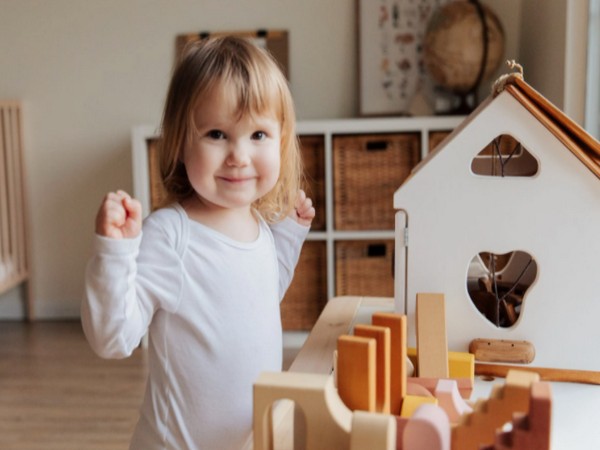 English
English

When toddlers have to wait, it is often difficult for them, as they can’t yet regulate their emotions.

Berlin [Germany]: When toddlers have to wait, it is often difficult for them, as they can't yet regulate their emotions.
A new study has found that left to their own devices, children prefer activities that correspond to their temperament. The findings of the study were published in the journal 'Child Development'.Toddlers were able to learn to distract themselves by observing a stranger and generalising the observed behaviour.
When their mother wants to finish typing an email or their father is on the phone, toddlers can get restless very quickly: at this age, waiting is not something they are good at. How can parents teach their children to cope better with such waiting situations? This question was the starting point for the study that involved 96 toddlers aged two and their parents.
A previous study had shown that children can learn through observation to distract themselves with a toy while waiting. The current work focused on the role of a child's temperament.
Therefore, the researchers made the toddlers in the study wait for three minutes for a small gift or candy. The coveted object was put out of reach, but within sight and the study leader left the room. While waiting, the parents interfered as little as possible with the child, leaving them to their own devices. A stack of cups and, as a more active toy, a toy lawnmower were available. On the experimenter's return, the toddler received the desired object.
"We observed that children who were described by their parents as rather calm tended to occupy themselves by playing calmly, such as stacking the cups, and the toddlers who were characterised by their parents as rather active tended to play in an active manner, such as running around with the lawnmower and thus managed to regulate their negative feelings well," outlined Johanna Schoppmann.
In the second step, the researchers looked at how best to support a child in finding something to do while waiting in order to regulate their emotions. To this end, the researchers showed the children how to distract themselves with either quiet or active playing activities, whereas children in a control group performed a playful task that had nothing to do with waiting. Subsequently, all children waited a second time for three minutes.
"In this situation, it was shown that toddlers who had observed an adult playing while waiting distracted themselves more than the children who had not observed anyone waiting," said Johanna Schoppmann.
This means that the children copied distraction as a strategy. However, there were no differences in whether the children's temperament matched the demonstrated playing style (quiet or active).
The researchers concluded that toys that match the child's temperament are not as important when it comes to learning strategies from others. Toddlers can also learn from both parents and strangers how to regulate their emotions through activity. (ANI)
No related posts found.